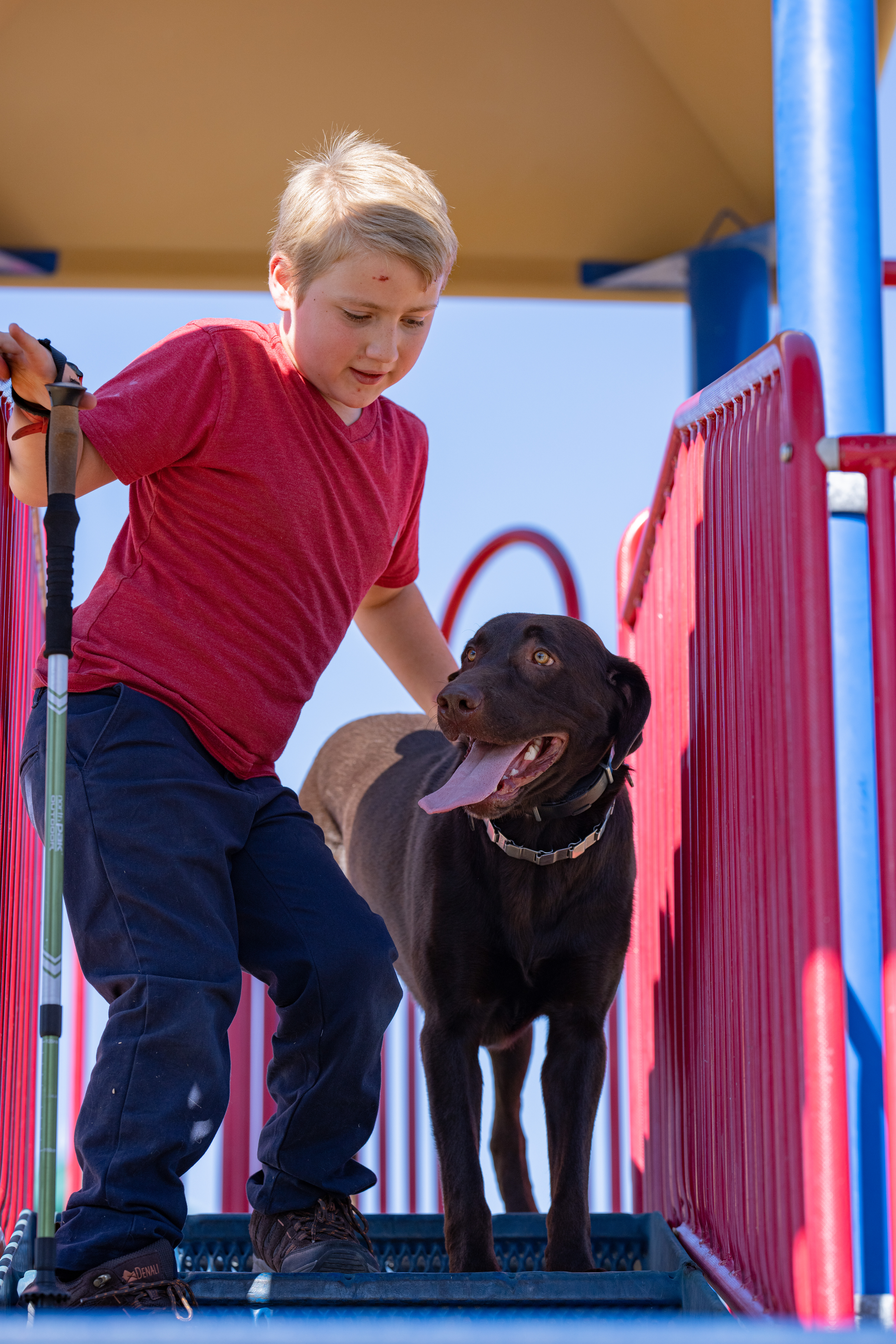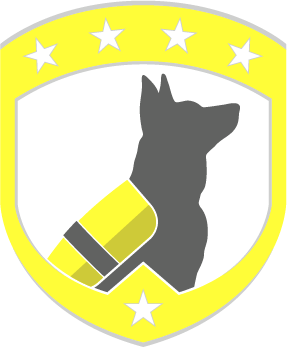


Custom Service Dog Programsto Fit Your Child's Specific Needs
No matter what your child's special needs are, there's a good chance that a service dog can help. The Malinois Foundation can almost always tailor service dog training to fit the specific needs of your child, regardless of what diagnosis or disability your child and family are faced with. We work with the whole family to identify tasks that can improve the life of your child and your family’s overall wellbeing.
How can a service dog help a child with special needs?
Studies show that service animals can have an enormous impact on a child's physical independence, development and emotional well-being. Service Dogs act as constant companions to children with disabilities, helping them to improve social interactions and relationships, improve safety and alleviate symptoms.
Service dogs can be trained to perform a wide range of tasks including:
- Responding to Seizures
- Alert to Low and High Sugar Levels
- Getting Help in an Emergency
- Deep Pressure
- Provide Balance While Walking
- Carrying Items
- Getting up from Seated Position
- Getting up from the Ground
- Opening Household Doors
- Moving Wheelchair
- Disruption of Harmful Behaviors
Does my child qualify for a service dog?
No matter what your child's special needs are, there's a good chance that a service dog can help. The Malinois Foundation can almost always customizing service dog training to fit the specific needs of your child, regardless of what diagnosis or disability your child and family are faced with. We work with the whole family to identify tasks that can improve the life of your child and your family’s overall wellbeing. Below are just some of the services that we can provide.
Autism Support Dog
Raising a child with autism requires an unwavering commitment from caretakers, parents, siblings and communities. Common ASD treatments and interventions often put stress the family unit as a whole.
Studies indicate that autism service dogs can have a significant impact on the safety, emotional wellbeing and communication in child with autism. A service dog can be trained to prevent children with ASD from bolting, encourage communication, disrupt self-injury and provide sensory therapy leading to a reduction in cortisol levels and unsafe behaviors.
Evidence suggests that service dogs have an anchoring affect on children with autism and can provide a sense of security to family members.
Diabetic Alert
Children with type 1 diabetes require constant monitoring of their blood sugar levels in order to prevent symptoms of hypoglycemia. If left untreated, low blood sugar levels can lead to seizures, blackouts, and even comas. There are early symptoms of hypoglycemia such as sweating, shaking, or confusion, however, after a few years, a person with type 1 diabetes may lose their ability to feel these symptoms as they develop Hypoglycemia Unawareness.
Living a balanced life with Type 1 diabetes isn't always easy. With the support of a diabetic alert dog, that balance becomes a possibility.
Child Traumatic Stress
Children who suffer from child traumatic stress often have experienced one of more traumatic event resulting in traumatic reactions. According the The National Child Traumatic Stress Network, these reactions can include a variety of responses, including intense and ongoing emotional upset, depressive symptoms or anxiety, behavioral changes, difficulties with self-regulation, problems relating to others or forming attachments, regression or loss of previously acquired skills, attention and academic difficulties, nightmares, difficulty sleeping and eating, and physical symptoms, such as aches and pains.
Studies indicate that the presence of a service animal during treatment correlates with positive changes in a child’s behavior, improvements at school, increase in kindness/empathy family members, increased communication and overall reduction in symptoms.
Get Help Now
A service dog can have an enormous impact on your child's treatments and interventions as well as providing your family with additional tools and security in caring for your child's needs.
Apply NowAbout The Malinois Foundation
The Malinois Foundation was founded in 2013 with a mission to support Veterans with PTSD and/or physical needs. We have expanded our resources to serve First Responders, Women Survivors, and Children with special needs across the U.S.

Apply for a Children with Disabilities
Service Dog
Support a Children with Disabilities
Donate Here!
Join the Pack Volunteering is a ball with The Malinois Foundation!
Events Team - If you are interested in joining the Pack, Volunteer as a team member at our events! Events include charity auctions, training for both dogs and their humans, building foundation recognition and more! Did we mention puppies and service dogs?
Puppy Socializer - If you love puppies and getting to know others within your community this is the perfect job for you! Getting puppies socialized helps them become the best service dogs for their owners.
Internships - We are always looking for help in various ways! Join our team and gain valuable skills!
Join the Pack Volunteering is a ball with The Malinois Foundation!
Events Team - If you are interested in joining the Pack, Volunteer as a team member at our events! Events include charity auctions, training for both dogs and their humans, building foundation recognition and more! Did we mention puppies and service dogs?
Puppy Socializer - If you love puppies and getting to know others within your community this is the perfect job for you! Getting puppies socialized helps them become the best service dogs for their owners.
Internships - We are always looking for help in various ways! Join our team and gain valuable skills!
Supporting The Malinois Foundation
We could not change the lives of veterans, first responders, women survivors and children without our amazing sponsors and supporters.

10+ Years
In Serving
1800
Volunteer Hours/ Year
161+
Service Dogs Placed
8+ States
Served











